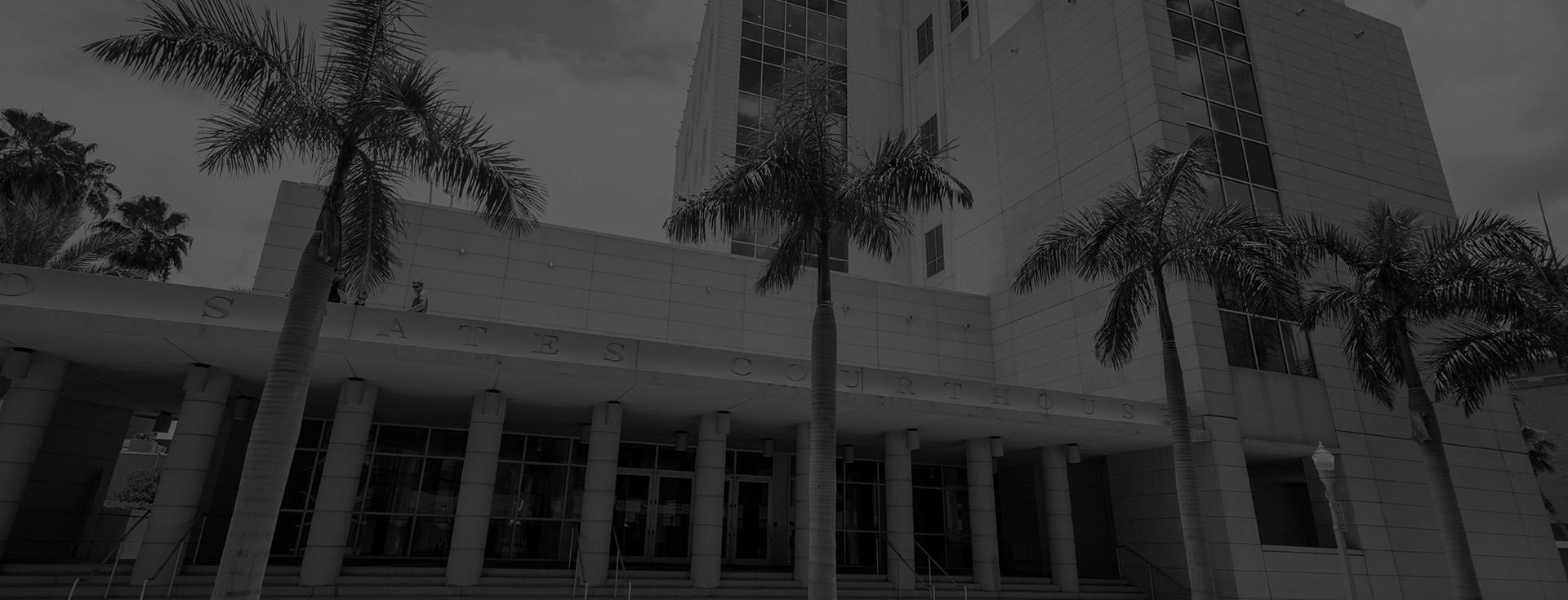
Your Case Deserves Immediate Attention - Call Hubbs Law Today
Stalking Injunction Attorney in Miami
One of the most commonly filed domestic violence injunctions in the state of Florida is an injunction for protection against stalking. Stalking can consist of the repeated following, harassment, or cyberstalking of one person by another.
While a stalker can exhibit violent behavior, a victim of stalking violence doesn’t necessarily have to allege violence to be granted an injunction under the statute. In many stalking cases, a victim of stalking violence can simply show evidence of unwanted communications which might consist of phone calls, text messages, emails, or communications through social media.
Whether you are seeking or need assistance defending against an injunction for protection against stalking, your case should be thoroughly evaluated by an attorney.
What is an Injunction?
An injunction is an order from the court that directs an individual to stay away from that person or that person’s property. It is also commonly referred to as restraining order or protective order. There are five types of injunctions in the state of Florida related to domestic violence:
- Stalking Injunctions
- Domestic Violence Injunctions
- Sexual Violence Injunctions
- Repeat Violence Injunctions
- Dating Violence Injunctions
Each injunction requires different evidence or testimony to obtain a permanent injunction. The burden of proof is always on the person that filed the injunction, also called the “Petitioner”. The person that defends against the injunction is called the “Respondent”.
After the Petitioner files the injunction, the Judge will review only the facts alleged in the four corners of the Petition to determine if there is a sufficient basis to grant a temporary injunction against the respondent. If the Judge grants a temporary injunction, then the case will be set within 15 days for a permanent injunction hearing. During this period, law enforcement will attempt to serve the Respondent with the temporary injunction.
What is Stalking?
Under Fla. Stat. 784.048, “stalking” is defined as “willfully, maliciously, and repeatedly following, harassing, or cyberstalking” another individual. “Harass” means to engage in a course of conduct directed at a specific person which causes substantial emotional distress to that persons and serves no legitimate purpose.
“Cyberstalk” means to either:
- Engage in a course of conduct to communicate, or to cause to be communicated, directly, or indirectly, words, images, or language by or through the use of electronic mail or electronic communication, directed at or pertaining to a specific person; or
- To access, or attempt to access, the online accounts or internet-connected home electronic systems of another person without that person’s permission,
and causing substantial emotional distress to that person and serving no legitimate purpose.
As one can see, under any theory of stalking, the Petitioner is required to prove that the unwanted contact “served no legitimate purpose”. Courts have found that a respondent had a legitimate purpose in contacting a petitioner in the following instances resulting in a dismissal of the injunction:
- Girlfriend’s act of taking pictures of automobile and license plate of car driven by boyfriend’s former girlfriend in their neighborhood served legitimate purpose because the current girlfriend was attempting to show boyfriend that his ex-girlfriend was still coming to neighborhood. Gonzalez v. Funes, 300 So. 3d 679 (4th DCA 2020).
- Filmmaker’s act of contacting individual for the purpose of informing her of his documentary served a legitimate purpose and is not considered stalking. O’Neill v. Goodwin, 195 So. 3d 411, (4th DCA 2016).
- Businessman’s emails to other party had a legitimate purpose since he was attempting to get other party to drop what he considered a frivolous lawsuit against him. David v. Textor, 189 So. 3d 871, (4th DCA 2016).
A Petitioner in a stalking case must also prove that the unwanted conduct caused the Petitioner “substantial emotional distress”. In evaluating whether a Petitioner has suffered substantial emotional distress, courts apply a reasonable person standard and analyze whether a reasonable person in Petitioner’s shoes would have suffered substantial emotional distress. In making this evaluation, courts have found that the Petitioner suffered no substantial emotional distress in the following cases:
- Respondent’s actions of visiting Petitioner’s office once and calling twice to ask about the Petitioner’s whereabouts would not cause a reasonable person substantial emotional distress. Touhey v. Seda, 133 So. 3d 1203, (2nd DCA 2014)
- Respondent’s act of staring at Petitioner while she was sunbathing would not cause a reasonable person substantial emotional distress. Paulson v. Rankart, 251 So. 3d 986 (1st DCA 2018).
- Respondent’s act of banging on Petitioner’s door would not cause a reasonable person substantial emotional distress resulting in the dismissal of the injunction. David v. Schack, 192 So. 3d 625 (4th DCA 2016).
Who can File a Stalking Injunction?
Any person who is the victim of stalking or cyberstalking, or the parent or legal guardian of a minor child who is living at home who seeks an injunction for protection against stalking on behalf of the minor child, has standing to file a petition in circuit court.
What Happens at a Stalking Injunction Hearing?
At a stalking injunction hearing, the Petitioner has the burden to prove that the Respondent committed at least two acts of stalking, one of which must have occurred within the past six month period prior to the filing of the injunction. The Petitioner can testify to these facts, call other witnesses, or submit evidence to the court. The Respondent, or his or her attorney, then can cross-examine witnesses or make objections to evidence.
After the Petitioner finishes his or her case, then it is the Respondent’s turn to testify, call witnesses, or produce evidence to the court. However, it is important to note that the Respondent is not required to testify or produce any evidence because the burden of proof lays with the Petitioner. In fact, in many cases, it is in the Respondent’s best interest to invoke his or her 5th Amendment right to remain silent in these hearings especially if there is still a pending criminal investigation or case. This decision to testify or not testify should be made carefully and should always involve consultation with an experienced criminal defense attorney.
After both sides have had an opportunity to be heard, the Judge will then make a determination whether the Petitioner has proven that the Respondent has committed stalking under Florida law.
What are the Consequences of a Stalking Injunction?
If the Judge determines that the Respondent has committed two acts of stalking with one incident being within a six month period, then a permanent injunction will be granted. A permanent injunction can be granted for any amount of time but is typically granted between one year to indefinitely. In addition, a Judge can also order a Respondent to complete Florida’s batterer’s intervention program, a drug/alcohol evaluation followed by any recommended treatment, a mental health evaluation followed by any recommended treatment, and/or a parenting class. A permanent injunction will also prohibit the Respondent from owning or possessing a firearm while the injunction is active.
What Happens if I Violate a Stalking Injunction?
Violating a Stalking Injunction can lead to serious consequences including contempt of court proceedings, extending the original permanent injunction, or potential criminal charges.
Do I Need an Attorney for a Stalking Injunction?
You are not required to have an attorney to represent you for a stalking injunction. You also don’t have the right to an attorney like you would if you were facing criminal charges. However, it is highly advisable to retain a skilled criminal defense attorney for a stalking injunction.
As stated previously, permanent injunctions have serious consequences including showing up on a background check, loss of gun rights, and potential jail time and immigration consequences upon a violation of the injunction.
Find an Attorney for Stalking Injunctions in Miami, FL
If you were served with a stalking injunction in Miami, FL, or anywhere in Miami-Dade County, contact an experienced criminal defense attorney to help prepare your defense.
Our criminal defense attorney, E.J. Hubbs , has handled all types of injunction cases including injunctions for protection against stalking. He is also board certified in criminal trial law, making him an expert in the field.
At Hubbs Law Firm, we fight to protect the rights of clients who are served with any injunction, including stalking injunctions, in Miami, Miami Beach, North Miami Beach, Miami Shores, North Miami, South Miami, Kendall, Cutler Bay, Palmetto Bay, Pinecrest, Homestead, and anywhere else in Miami-Dade County.
Call us today at (305) 570-4802 to schedule a free initial consultation to discuss your case.
Additional Resources
National Domestic Violence Hotline – The Domestic Violence Hotline was founded by the Administration on Children, Youth, and Families. Find information on this hotline and seek domestic violence advice 24 hours a day 7 days a week by phone call, text, or chat.
Miami-Dade County State Attorney’s Office- the Miami-Dade State Attorney’s Office prosecutes individuals who are charged with domestic violence crimes.
Florida Courts - Find information on filing an stalking injunctions in the State of Florida.
Department of Children and Families (DCF) - get domestic violence information from the Department of Children and Families, the Florida agency tasked with protecting children in domestic violence situations.
Miami-Dade Clerk of Court - find information on filing an injunction for protection against domestic violence in Miami-Dade county.

Attorneys E.J. & Erika Hubbs
As professional Miami criminal defense attorneys, we take every case personally give every client the deliberate care it deserves. Our clients become part of our family and we fight relentlessly for their rights. Read more about us to find out how we can help you.

-
She made the process seamless, she was there for any questions we had, answered our phone calls or emails, and stayed on top of our case.
Alfred Pereira -
She was very accommodating with our work schedules and we felt comfortable with her knowledge and experience with immigration cases
Dolsin Rivas -
Happy Out of State Client
Michele D














